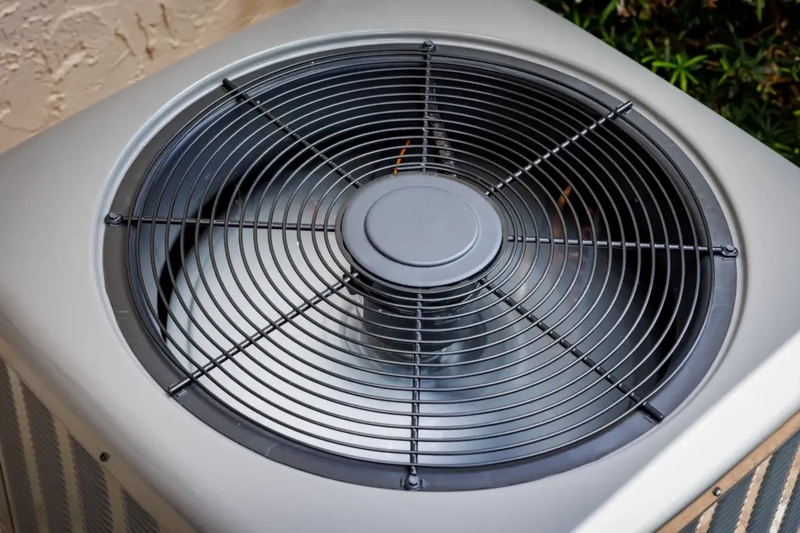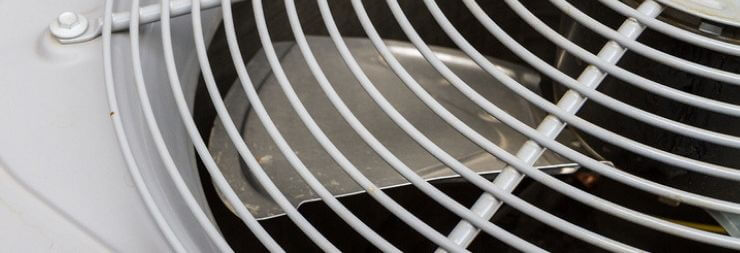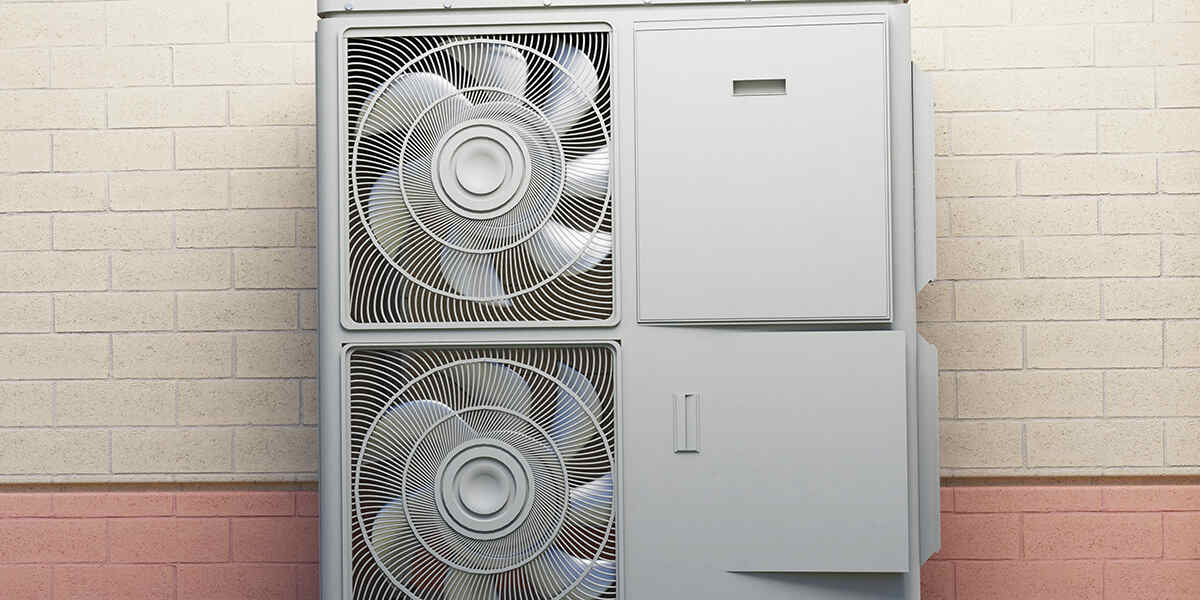Central Air Conditioner Fan Not Spinning

Central Air Conditioner Fan Not Spinning: Common Questions Answered
Is your central air conditioner running but the outside fan isn't spinning? This can be a frustrating and concerning issue. Don't panic! This FAQ addresses the most common questions homeowners and facility managers have when encountering this problem. Understanding the potential causes and solutions can save you time, money, and stress.
Q: Why isn't my central AC's outside fan spinning? The unit is making noise.
There are several reasons why your AC's outside fan might not be spinning, even if the unit is humming or making other noises. Here are some of the most common culprits:
- Bad Capacitor: The capacitor is like a battery that gives the fan motor the initial jolt it needs to start. A weak or failing capacitor is a very common cause.
- Faulty Fan Motor: The fan motor itself may be burned out or damaged. This is less common than a capacitor issue but still a possibility.
- Obstruction: Debris, such as leaves, twigs, or even small animals, can get lodged in the fan blades, preventing them from spinning freely.
- Worn Bearings: Over time, the bearings in the fan motor can wear out, causing friction and preventing the fan from spinning easily.
- Wiring Issues: Loose or damaged wiring can interrupt the power supply to the fan motor.
- Contactor Problems: The contactor is a switch that supplies power to the fan motor. If it's faulty, it might not be sending power to the fan.
- Overheating: If the compressor is overheating, the system might shut down the fan to prevent further damage. This is usually accompanied by other symptoms.
Q: How can I tell if it's the capacitor that's causing the problem?
Diagnosing a bad capacitor can be tricky without proper testing equipment, but here are some telltale signs:
- The fan hums but doesn't start: This is a classic symptom. The motor is receiving power, but the capacitor isn't providing enough of a boost to get it going.
- The fan starts slowly or erratically: If the fan eventually starts after a delay, or if it spins unevenly, the capacitor may be weak.
- The capacitor looks swollen or damaged: Carefully inspect the capacitor. If it's bulging, leaking, or has any visible signs of damage, it's definitely bad. Important: Disconnect power to the unit before inspecting the capacitor!
- Using a Multimeter: A multimeter can be used to test the capacitance of the capacitor. If the reading is significantly lower than the rated capacitance (usually printed on the capacitor), it's likely failing. This requires electrical knowledge and safety precautions. If you're not comfortable, call a professional.
Warning: Capacitors store a significant electrical charge even after the unit is turned off. Touching the terminals can result in a dangerous electric shock. If you suspect a bad capacitor and are not qualified to work with electrical components, contact a qualified HVAC technician.
Q: What can I do to try and fix the fan myself? Is this a DIY project?
Some troubleshooting steps are safe for homeowners to attempt, but others require professional expertise. Here's a breakdown:
- Safe DIY Tasks:
- Check for Obstructions: Turn off the power to the unit at the breaker box. Carefully inspect the fan blades for any debris and remove it. Use gloves to protect your hands.
- Visual Inspection: Look for obvious signs of damage to the fan blades, wiring, and capacitor (from a safe distance – don't touch anything!).
- Tasks Requiring Professional Assistance:
- Replacing the Capacitor: While you can buy a replacement capacitor, this involves working with electricity and requires knowledge of proper wiring and safety procedures. Incorrect installation can damage the unit or cause serious injury.
- Replacing the Fan Motor: This is a more complex repair that involves disconnecting electrical wiring and potentially working with refrigerant lines.
- Diagnosing Wiring Issues: Tracing and repairing electrical problems requires specialized tools and knowledge.
- Checking the Contactor: Testing and replacing the contactor is best left to a professional.
Important: Always disconnect power to the unit at the breaker box before attempting any repairs. If you're unsure about any step, err on the side of caution and call a qualified HVAC technician. Your safety and the longevity of your AC unit are worth it.
Q: How much will it cost to fix a central AC fan that's not spinning?
The cost to fix a non-spinning AC fan can vary widely depending on the cause of the problem. Here's a general idea:
- Minor Obstruction Removal: If the problem is simply debris blocking the fan, you might not have any cost beyond your time.
- Capacitor Replacement: A new capacitor typically costs between $20 and $100. Labor costs for a technician to install it can range from $75 to $200 or more, depending on the location and the technician's hourly rate. So, expect a total cost of $100-$300.
- Fan Motor Replacement: A new fan motor can cost between $100 and $500, depending on the size and type of motor. Labor costs can range from $150 to $400 or more. So, expect a total cost of $250-$900.
- Wiring Repair: The cost of wiring repair will depend on the extent of the damage and the technician's hourly rate. Expect a minimum service call fee plus an hourly rate for the repair work.
- Contactor Replacement: A new contactor can cost between $50 and $150. Labor costs for a technician to install it can range from $75 to $200 or more.
- Compressor Issues: If the fan isn't spinning due to a compressor issue, this is a much more serious and expensive problem, potentially requiring compressor replacement or even a new AC unit. Costs could range from several hundred to several thousand dollars.
It's always best to get a quote from a qualified HVAC technician before proceeding with any repairs. They can accurately diagnose the problem and provide a realistic estimate of the cost.
Q: Can running the AC with a broken fan cause further damage?
Yes! Running your AC with a fan that's not spinning can lead to serious and expensive damage. Here's why:
- Compressor Overheating: The fan's primary job is to dissipate heat from the condenser coils. If the fan isn't working, the compressor can overheat and potentially fail. Compressor replacement is a very costly repair.
- Increased Energy Consumption: The AC unit will work harder to try and cool your home, leading to higher energy bills.
- System Failure: Overheating components can cause other parts of the AC unit to fail, leading to a complete system breakdown.
- Fire Hazard: In extreme cases, overheating components can pose a fire hazard.
If you notice that your AC fan isn't spinning, turn off the unit immediately and call a qualified HVAC technician. Don't wait, as the longer you run the AC with a malfunctioning fan, the greater the risk of significant damage.
Q: How can I prevent this from happening again? What maintenance can I perform?
Regular maintenance can significantly reduce the chances of your AC fan failing. Here are some preventative measures you can take:
- Regular Cleaning: Keep the area around the outdoor unit free of debris, such as leaves, twigs, and grass clippings. Clean the condenser fins with a soft brush or a garden hose (gentle pressure). Do this at least twice a year, ideally in the spring and fall.
- Professional Maintenance: Schedule annual maintenance with a qualified HVAC technician. They can inspect the fan motor, capacitor, wiring, and other components to identify potential problems before they become major issues.
- Check the Fan Blades: Periodically inspect the fan blades for cracks or damage. Replace damaged blades promptly.
- Lubricate the Motor (If Applicable): Some older fan motors have lubrication ports. If your motor has these ports, lubricate them annually with the recommended oil. (Newer motors are typically sealed and don't require lubrication).
- Monitor for Unusual Noises: Pay attention to any unusual noises coming from the AC unit, such as grinding, squealing, or rattling. These noises could indicate a problem with the fan motor or other components.
- Consider a Surge Protector: Power surges can damage electrical components, including the capacitor and fan motor. Installing a surge protector can help protect your AC unit from power surges.
Proactive maintenance is the key to extending the lifespan of your AC unit and avoiding costly repairs. By following these tips, you can help ensure that your AC fan runs smoothly for years to come.










